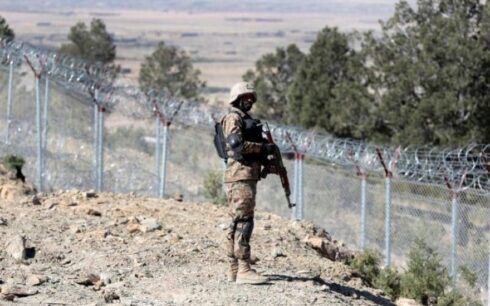Millions of Pakistani citizens are casting their ballots Thursday in a pivotal general election, with 128 million of the country’s 241 million population eligible to vote.
Contesting for 266 parliamentary seats, 70 reserved for women and minorities, and 749 state parliamentary positions are numerous parties and hundreds of independents.
Major national parties include Muslim League Nawaz, Pakistan Tehreek-e-Insaf, and Pakistan People’s Party. Nawaz Muslim League, led by ex-Prime Minister Nawaz Sharif, is fielding 266 candidates. Sharif, who has thrice been Prime Minister but never completed a term, was ousted by military intervention, Supreme Court decision, and presidential dismissal. He and his daughter Maryam Nawaz were sentenced to a decade in prison for corruption in 2017. Sharif returned from self-imposed exile in October last year, reportedly with Pakistani army backing, while his rival Imran Khan faces imprisonment and his party is suppressed.
Prominent Nawaz League figures include Shehbaz Sharif, Maryam Nawaz, ex-parliament speaker Ayaz Siddique, and former interior minister Rana Sanaullah.
Pakistan Tehreek-e-Insaf, founded by Imran Khan and now led by Gohar Ali Khan, faces challenges after Khan’s 2022 ousting via a no-confidence vote. With over 150 court cases against him, Khan was arrested last May, leading to widespread unrest. The party is reportedly suppressed by the military, with senior members leaving and many arrested. The party is barred from using its traditional symbol, forcing members to run as independents.
Khan recently received multiple prison sentences for various charges. Gohar Ali Khan, ex-speaker Asad Qaiser, deputy Sher Afzal Marwat, and former interior minister Shahryar Afridi are among the party’s backed candidates.
The Pakistan People’s Party, led by Bilawal Bhutto Zardari, seeks a return to power. The 35-year-old’s family has a long political history, including his grandfather, party founder Zulfiqar Ali Bhutto, and mother Benazir Bhutto, assassinated in 2007.
Other parties like Awami National Party, Pakistan United Qaumi Party, and Jamaat-e-Islami Party aim for state-level seats. The Pakistani army, historically influential in politics, continues to play a significant behind-the-scenes role, with current commander General Asim Munir reportedly holding sway despite not voting.
Post-election, the parliament will choose the next prime minister, with the possibility of a coalition government if no party secures a majority.





